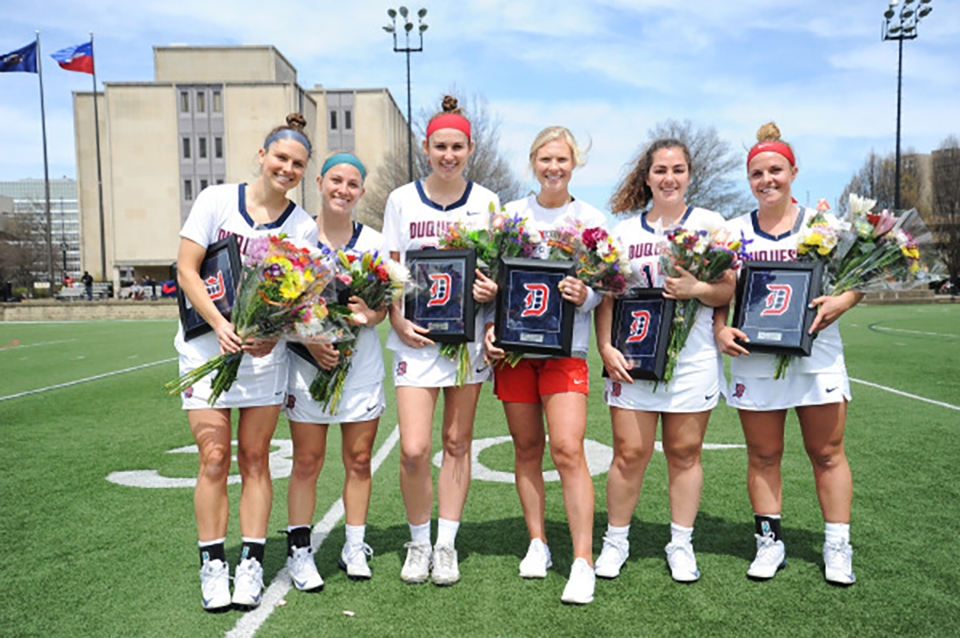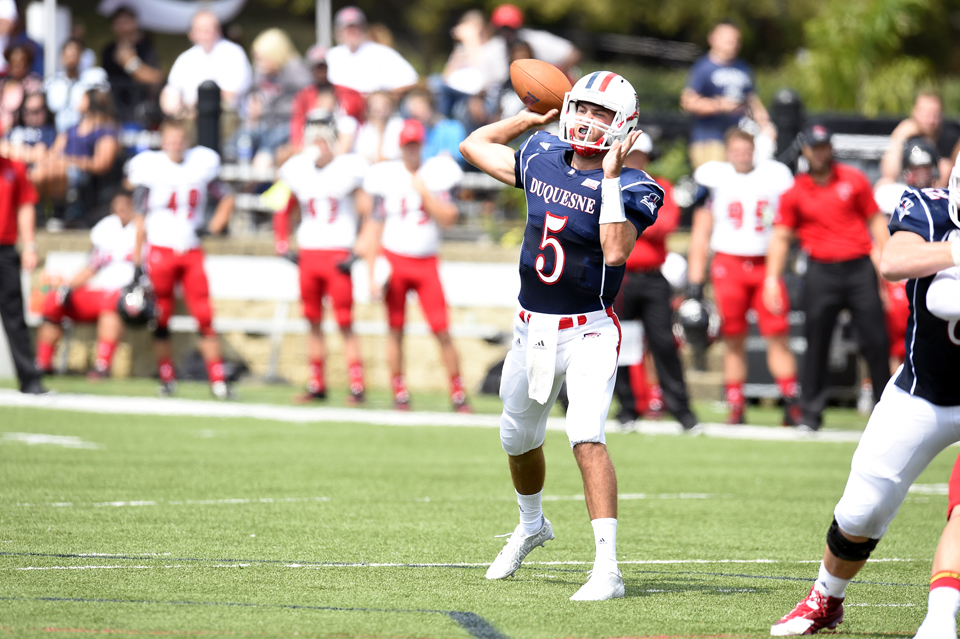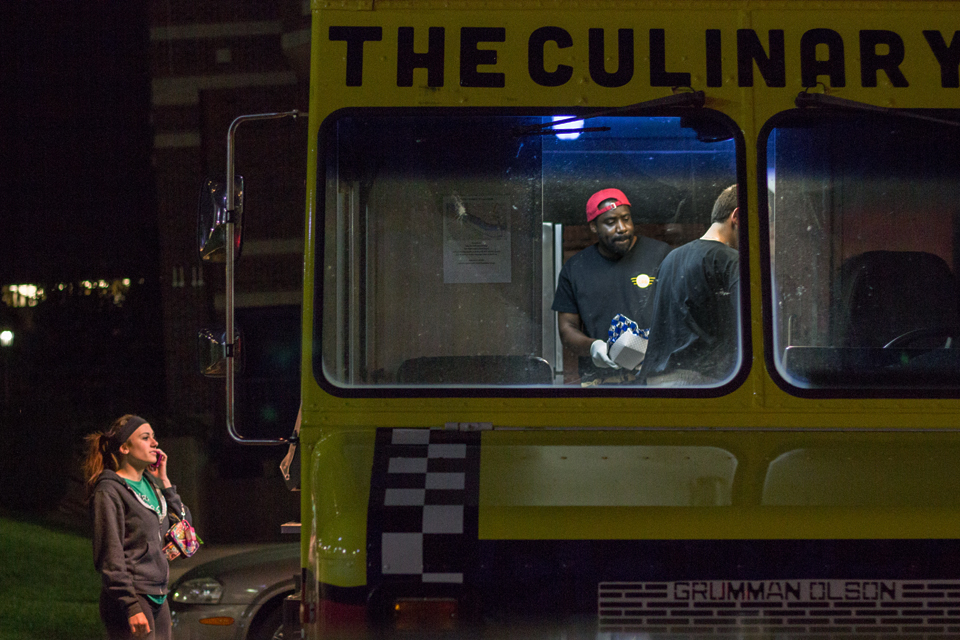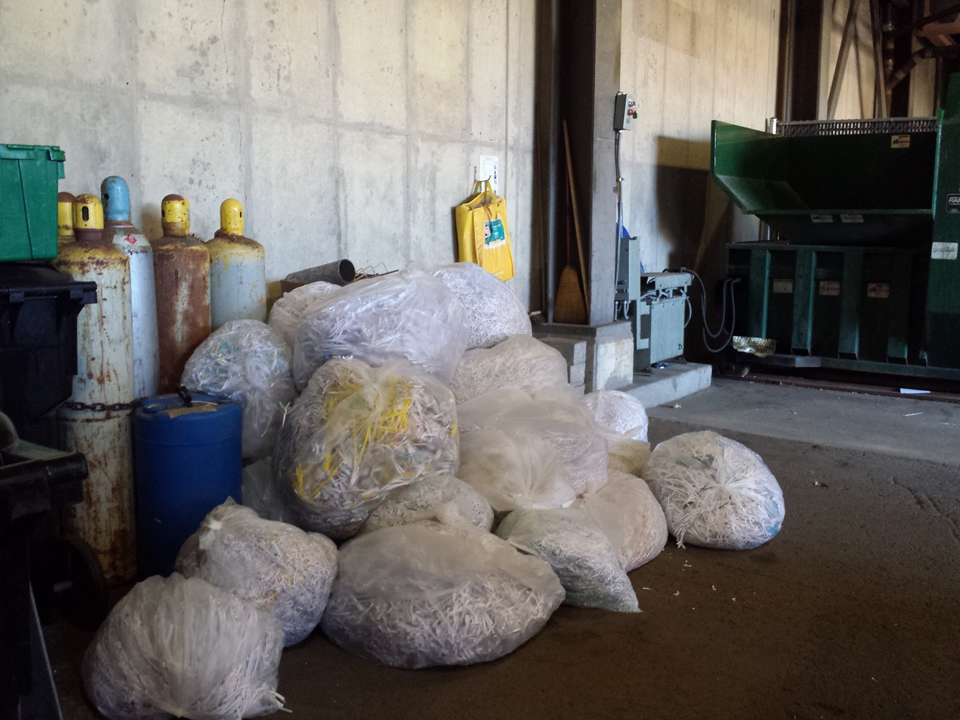
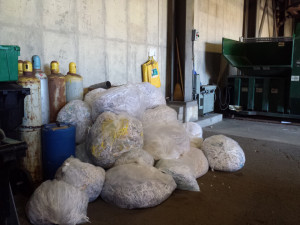
Shredded paper sits under the Locust parking garage before being recycled.
By Casey Chafin | The Duquesne Duke
A student group on campus is working hard to clear up any confusion Duquesne students, faculty and staff might have when it comes to proper recycling.
Gretchen Scheetz, co-president of Evergreen, a student group dedicated to making Duquesne more environmentally friendly, said her organization is currently working to improve recycling awareness on campus.
“People are very confused … like in Towers, they have recycling bins out by the elevators, but people don’t know what you can put in there and can’t put in there,” Scheetz said.
She said the club plans to hang up posters that tell students not only what can go in the bins, but how to prepare items for recycling, which can be just as important as knowing what goes where.
Coleman Griffin, grounds supervisor for facilities management, said all campus recycling bins can be used for paper, plastic, glass and metal, but it is still important to make sure these items are clean.
“One of the biggest problems that we have with the recycling is contamination,” he said. “A good example that I always talk about is pizza boxes. A lot of times they have grease and stuff like that on the bottom, and those are contaminated.”
He said the top part of the box can be torn off and thrown in the recycling, but the greasy bottom should be thrown in the regular trash.
Scheetz said if a student is unwilling to take the time to rinse out their recyclable containers, it is better to throw it in the regular trash instead of risking ruining an entire bag of recyclables.
Griffin confirmed this, saying that the university’s recycling provider, Waste Management, will throw away an entire bag if they spot one piece of contaminant inside.
“They’re looking to see what this recycle looks like … they’re in a clear bag and there’s a bunch of nice pop bottles, and there’s one that has soda in it, they throw the whole bag out,” he said. “They don’t rip the whole bag apart, because they just can’t. So that’s kind of unfortunate.”
Another point Evergreen hopes to drive home to students is that the color of the bin does not dictate whether or not it is for recyclables, according to Scheetz.
“One of the things that everyone thinks is, if it’s a blue bin, then you recycle,” she said. “But that’s not necessarily true, and so people put things in the wrong places, and then we’re creating a problem where everything is in the wrong spot.”
She said the best way to tell whether or not a bin is for recyclables is if it has a clear bag in it instead of a black one.
Aside from the recycling bins around campus, the university offers several other opportunities for recycling, such as the furniture recycling program offered to all students living on campus. There is also a separate program for various specialty items, including batteries, chemicals and lightbulbs.
“[Students] can give [these items] to their housekeeper, and they’ll get it to the proper area to be recycled,” he said.
Griffin said Duquesne’s recycling compactor, located underneath Locust Garage on Gibbon Street, allows them to maximize their recyclable collections with the limited storage space the campus offers.
Currently, the university recycles 22 percent of its overall waste, and for reference, the best university recycling programs in the nation recycle about 30 percent, according to Griffin.


